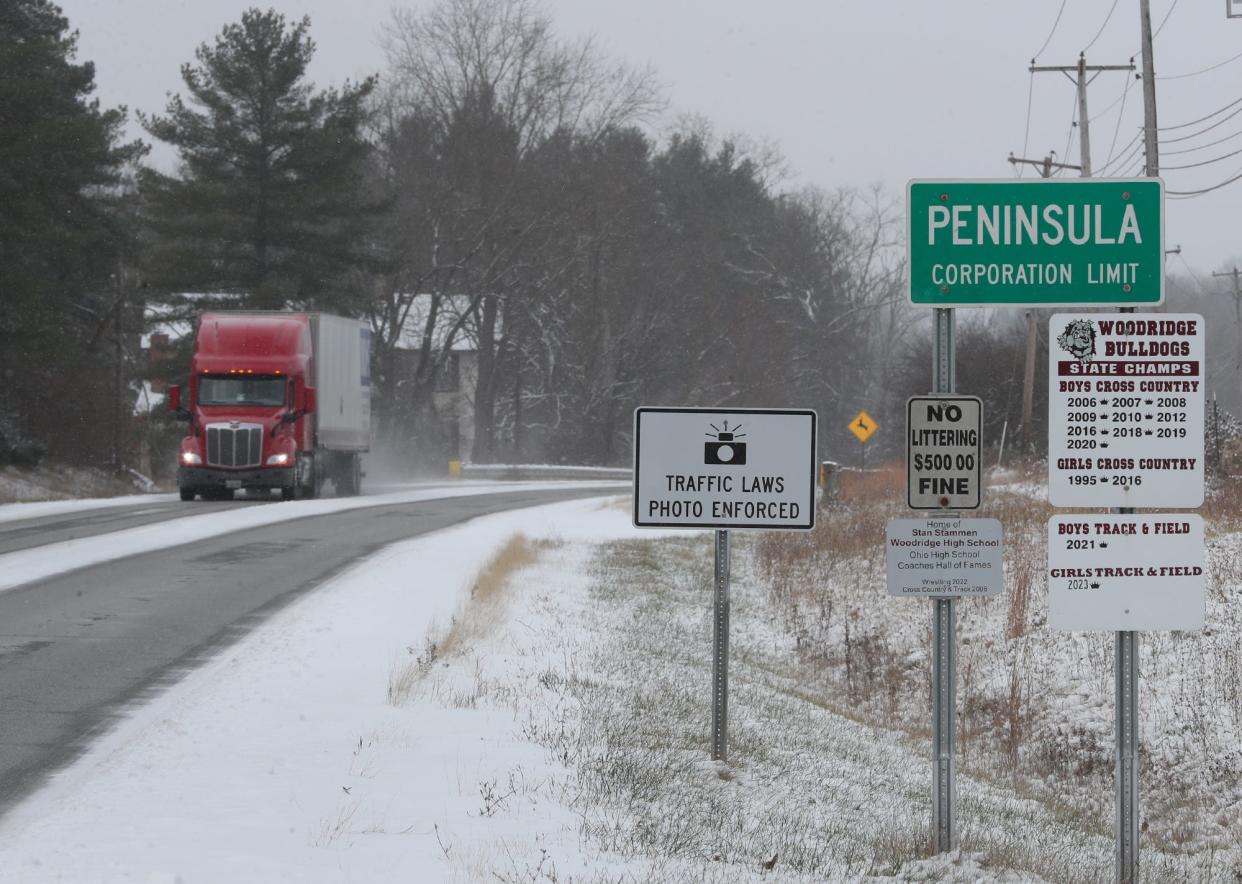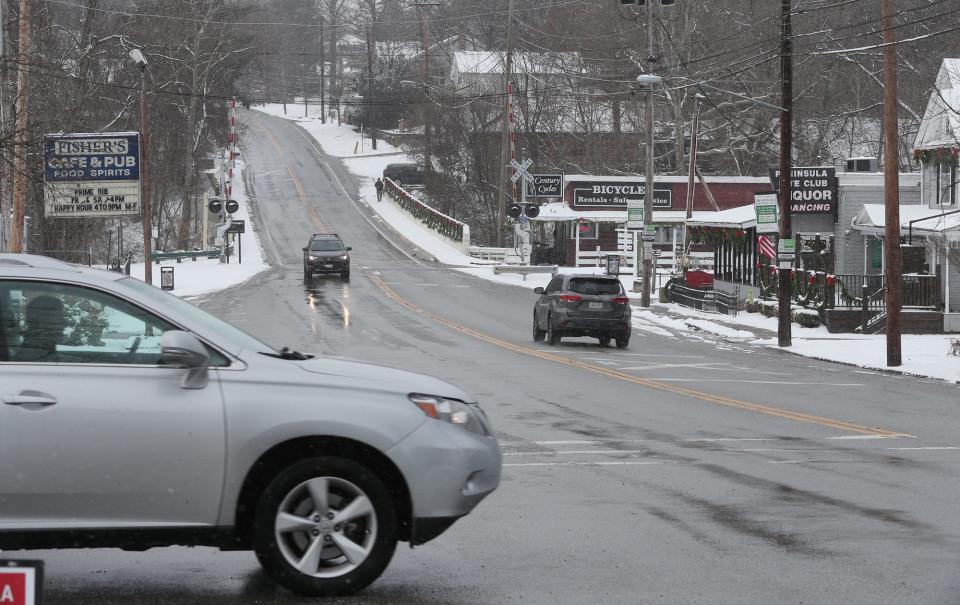Nonprofit law firm urges end of $100 fee to contest Peninsula speeding tickets

In a letter to village of Peninsula officials, the national nonprofit law firm Institute for Justice is urging the municipality to make it free to contest traffic camera tickets, reversing the $100 fee imposed by Stow Municipal Court to appeal speeding citations.
"Because these tickets range from $150-$250 in penalties, the court fee practically doubles the cost of the ticket—all because a driver chooses to exercise their constitutional rights," the letter sent to the village mayor, chief of police and village council members reads.
The letter comes roughly seven months after the village began its camera enforcement program in April.
At least 9,930 speeding citations have been levied against drivers in Peninsula since April. Of that amount, 6,400 tickets were paid as of mid-November, leaving nearly $525,000 in unpaid tickets.
Unpaid ticket questions: Over half of Peninsula photo traffic tickets are unpaid. What happens to those drivers?
In total, drivers paid about $981,400 in tickets in that seven-month period. The village received 60% of that or $588,837, which is just under half of the village's total cash receipts in 2022.
The contracting camera company Targeting and Solutions Limited got the remaining 40%, or $393,284, according to payment records.
Stow Municipal Court documents show 34 appeals were filed since the program began. Of that, seven were successful, 22 were dismissed in favor of the village and five were ongoing as of Tuesday.
Stow Court Administrator Rick Klinger said Tuesday morning he had not seen the letter before and would review it. He did not provide a comment by press time.
"The Village of Peninsula complies with all guidelines and rules established for it by the Stow Municipal Court regarding filing fees," said a spokesperson for the Village of Peninsula Photo Enforcement Program.

What is the $100 fee to appeal a ticket?
The Stow Municipal Court website outlines how to appeal a traffic camera citation.
The website explains how a $100 fee is required to submit an appeal application. That fee, according to the court, will be returned if the appeal is successful. This fee is not imposed by Peninsula as it is required for all traffic camera citations in the court's jurisdiction.
If the case fails, the fee is not returned.
Appeals: Over half of Peninsula photo traffic tickets are unpaid. What happens to those drivers?
Why does the Insitute of Justice believe the fee is illegal?
For the Institute for Justice, the $100 fee makes contesting tickets more difficult for those with less money.
"This creates a serious disincentive for drivers to challenge these violations, and, by assuring they will go uncontested, it leaves officers more incentivized to issue them," the letter reads. "The right to due process is not meaningful if it exists behind a paywall."
The IJ cites the Ohio Revised Code and decisions from an Ohio Supreme Court case and U.S. Supreme Court cases as evidence that the $100 fee goes against state law, according to the letter. These laws and decisions do not specifically mention the appeals process for such tickets.
The IJ stated that Ohio law requires local authorities to provide advance deposits when filing civil actions, and the defendant is not liable for those deposits.
"The court shall retain the advance deposit regardless of which party prevails in the civil action and shall not charge to the registered owner or designated party any court costs and fees for the civil action," the Ohio Revised Code referenced by the IJ reads.
The Ohio Supreme Court determined in Dayton v. State of Ohio in 2022 that local municipalities "will shoulder the burden that their litigation creates" based on that law, according to the opinion.
"The deposit requirement may make litigating violations based on traffic cameras more expensive for municipalities," the opinion reads. "Nonetheless, the deposit requirement does not conflict with local law, because it does not prohibit municipalities from using cameras to enforce their traffic laws."
The IJ also cited Boddie v. Connecticut from 1971, a U.S. Supreme Court case that determined defendants should not face fees that could exclude them from being able to settle disputes. For the IJ, this includes the $100 appeals fee.
This article originally appeared on Akron Beacon Journal: Firm urges end to $100 fee to contest Peninsula speeding tickets

